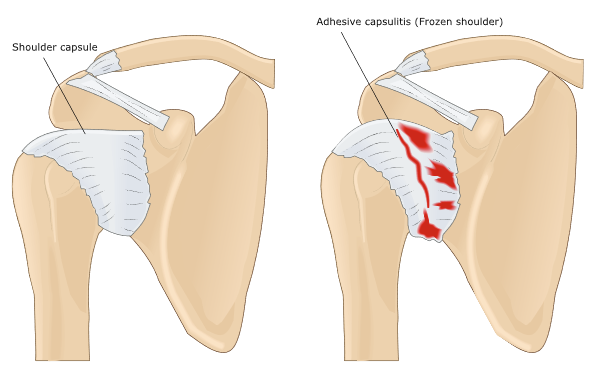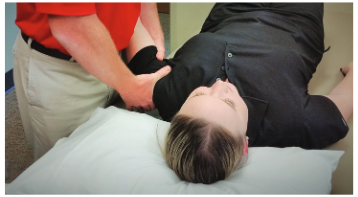|
BOOK NOW |
ASK ABOUT YOUR PAIN |
Home > Blog > Hand Therapy & Customized Splinting > Conditions > Finger, Hand, Wrist, Forearm & Elbow Conditions > Frozen Shoulder Hand Therapy
Frozen Shoulder Hand Therapy
“Working with a knowledgeable hand therapist can make the difference between success and failure in complex hand surgical cases. The therapist extends the continuum of our care, as well as functioning as coach and trainer for our patients.”
Marybeth Ezaki, MD, Past President, American Society for Surgery of the Hand
In Phoenix Rehab, our senior hand therapists are experienced licensed and dedicated therapists (physiotherapists and/or occupational therapists) who specialized ONLY in the rehabilitation, treatment and management of painful fingers, hands, wrists, forearm & elbow conditions, because of interest, passion and expertise.

Frozen shoulder is the shortening, thickening and chronic inflammation of the soft tissue surrounding the shoulder joint, which can result in
- shoulder pain and
- loss of motion
Medically, it has been called adhesive capsulitis, and more recently, frozen shoulder contracture syndrome, but they all carry the same meaning.
What causes frozen shoulder?
Frozen shoulder may be associated with an injury, such as a broken arm, and the inactivity of the arm following the injury.
Sometimes, a frozen shoulder may develop with no known cause, which to date the medical and scientific community has yet to confirm the actual reasons why this condition happen in the first place.

Front view of right shoulder
What are the symptoms of frozen shoulder?
The symptoms of frozen shoulder are typically pain and loss of movement in the shoulder joint.
Lifting, reaching and daily activities, such as putting on a shirt, may be difficult, and pain may be worse at night.
There are three stages of frozen shoulder.
- The early stage when pain is greater than stiffness is known as the “freezing” stage
- The stage when stiffness is greater than pain is known as the “frozen” stage
- The “thawing” stage occurs when pain has decreased and shoulder range of motion begins to improve.
If frozen shoulder is left untreated, the pain and stiffness from a frozen shoulder may last a few years, if not longer.
What is the treatment for frozen shoulder?
The term frozen shoulder suggests that shoulder pain and stiffness will eventually “thaw” on its own without the need for therapy; however, with shoulder physiotherapy and hand therapy treatment, shoulder motion will return much faster.
Non-surgical treatment of a frozen shoulder can include
- therapy to help with motion and pain
- medication to reduce inflammation and control pain
- a cortisone injection
Surgical treatment is an option your physician may recommend if pain and motion do not improve.
What can a hand therapist do for me?
Our senior hand therapist has specialized training to assist in reducing joint pain and improving shoulder motion and function.
Each patient’s condition is unique, and will require a thorough evaluation to determine the best treatment approach.
The physician, our senior hand therapist and patient work together as a team in order to achieve the best possible outcomes for an individual with a frozen shoulder.

Patients may also receive the following hand therapy treatment modalities:
- cold therapy
- heat therapy
- moist heat paraffin wax therapy
- manual therapy
- joint mobilization
- ultrasound therapy
- stretching exercises
- strengthening exercises
- scar management
- etc